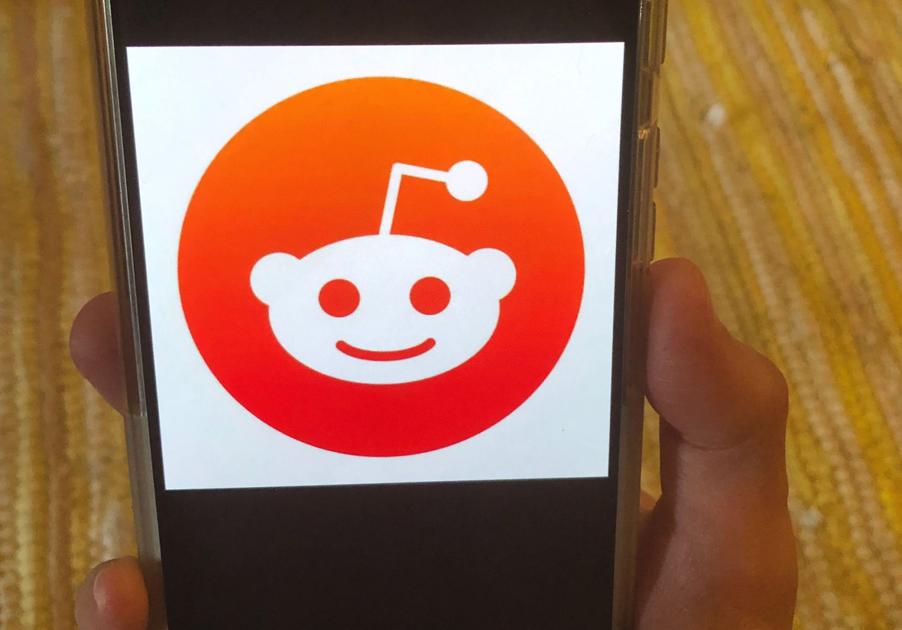
We are at a transformational time in how we see things in this country, from monuments to NASCAR, but part of the way we got here is because of how we talk to one another. If you’re not concerned about the tone of discourse, you’re not paying attention.
The terms and conditions of decency apply less with each passing meme and Twitter fit, every hateful conspiracy theory and subreddit.
Things reached a boiling point in late May, when Twitter flagged its patron president for the accuracy of a tweet about mail ballots, then flagged the president for tweeting looters could be shot. President Trump cried foul and threatened the weight of the government on social media.
Then the week before Independence Day, the message board network Reddit barred more than 2,000 communities to combat hate speech. Understand, we’re talking about Reddit, an internet outpost for niches and opinions on the fringe.
Among the exiles was “The_Donald,” the 5-year-old subreddit where more than 790,000 of the president’s most devoted fans posted memes, videos and plaudits.
The talk, however, sometimes crosses the line from abrasive to abusive, the company said.
“Reddit is a place for community and belonging, not for attacking people,” chief executive Steve Huffman told reporters. “The_Donald has been in violation of that.”
There’s more to it. Reddit is getting more of its money from advertising these days. As it matures into one of the destination sites on the web, the brands it courts won’t be affiliated with hateful language.
The government can’t restrict free speech, but a private company can, just like a newspaper decides what articles to print. If you want a free market system, there it is, democracy from dollars.
Later that same day, June 29, Twitch temporarily suspended the Trump campaign’s account for rebroadcasting the president’s most famous comments about Mexican immigrants, which the live-streaming service said violated its hateful conduct policy. The company is owned by Amazon mogul Jeff Bezos, who is no fan of Trump.
The next day, YouTube banned several far-right hosts, including former Ku Klux Klan leader David Duke, alt-right figurehead Richard Spencer and the pro-Trump “race realist” Stefan Molyneux.
People who want this content, especially those who want to spew it, are outraged. The president suggests Twitter, a platform as ubiquitous as the phone company used to be, is one with outsized power.
OK, look at the 2016 presidential election and the pervasiveness of metadata harvesting to see how manipulators are two steps ahead by staying one step behind everywhere we go online.
I talked to a couple of experts, assistant professors in the Information Sciences Department at the University of Colorado, about how we got in this tangle.
Brian Keegan worked on an analysis of the language used in 16 million comments on The_Donald, and Casey Fiesler has studied the governance, ethics and “fandom” of online communities.
Keegan said those pushing an agenda can manipulate the system with fake accounts and sticky posts, tricking Reddit’s algorithm to keep a message near the top of the queue.
Denying them harbor before a big audience can slow a cause a good bit, turning a megaphone into an echo chamber.
“People say they’re going to leave and create these new sites, take their ball and go home, but the reality is very few people follow them,” Keegan said.
The way fringe messages stay alive is online, however, fed by people who understand the system, be they foreign or domestic, and they’re not going away, he said.
Fiesler talked about the narrow views whetted from a lack of democracy online.
“Everyone would benefit from seeing a little more of other perspectives,” she said, acknowledging that the line between hate speech and free speech is a hard one to draw.
“Platforms, as private companies, get to decide where that line is,” Fiesler said. “The First Amendment doesn’t apply to Facebook.”
My friend Tom Cosgrove, the documentarian and great social observer based now in Boulder, wrote an op-ed in the San Jose Mercury News on July 2 about the “Facebook virus,” the ability to spread misinformation like an illness.
“Disinformation, disguised as memes and news, has become so prominent in our public discourse that it is sending us and our democracy to the ICU,” he wrote. “With Facebook, there is no social distancing. Simply logging on means exposure to fake cures, bogus news and foreign agents stoking our country’s divisions.”
Tom cares deeply about consensus. I've told you about his documentary about a polarized America, “Divided We Fall: Unity Without Tragedy.” You can find it airing nationally on PBS, but it made its debut here in Colorado. Tom is the president of the nonprofit New Voice Strategies, a problem-solving incubator you should learn more about.
Tom says it’s time to push back for balance in this country, and that’s hard to disagree with it.
What’s harder is figuring out whose ideas are closest to the center when we’ve gotten so good at yelling “extreme” at anything we disagree with. Before we can compromise with others, we have to figure out what’s important to us and what are we willing to give up.
Online, you don’t have to give up anything, but online is not reality.
"difficult" - Google News
July 13, 2020 at 02:00AM
https://ift.tt/300bVCY
Hate speech is a difficult constitutional conversation | INSIGHTS - Colorado Springs Gazette
"difficult" - Google News
https://ift.tt/2VWzYBO
https://ift.tt/3d5eskc
Bagikan Berita Ini














0 Response to "Hate speech is a difficult constitutional conversation | INSIGHTS - Colorado Springs Gazette"
Post a Comment